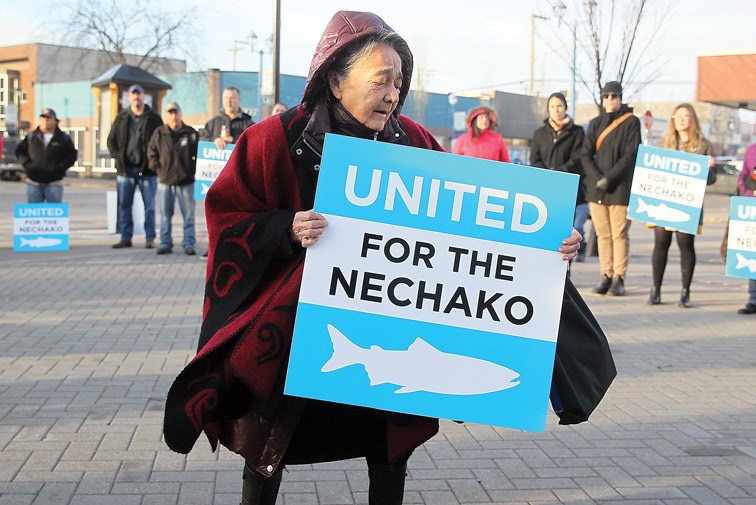Testimony from Saik'uz and Stellat'en First Nations in a long-running lawsuit against Rio Tinto and the provincial and federal governments was expected to wrap up on Tuesday, but there is still a long way to go.
The case centers on the impacts of the construction and operation of the Kenney Dam on the Nechako River. Completed in 1952, it created the massive Nechako Reservoir which provides hydro power to Alcan's aluminum smelter in Kitimat in northwest B.C.
The communities say about 70 per cent of the water that would normally flow into the Nechako River is diverted as a result of the project, causing "devastating effects" on the river's fish species - chinook salmon, sockeye salmon and Nechako white sturgeon.
They also claim the project violates Saik'uz and Stellat'en's constitutionally-protected Aboriginal rights, including fisheries on the river and that the 1987 and 1997 Settlement Agreements entered into by Rio Tinto's predecessor, Alcan, and B.C. and Canada are not defenses against those rights.
They are seeking an injunction that would require RioTinto to "reinstate the functional flows that make up the natural flow of the Nechako River."
Five days of the case was held in Prince George in November last year to give elders a chance to testify without going through the stress of travel. The rest of the case before B.C. Supreme Court Justice Nigel Kent is being heard in Vancouver.
The court will next hear the cases of each of the defendants, starting with Rio Tinto while the First Nations are expected to lead some evidence in reply to the defendants' cases.
The trial was delayed earlier this year due to restrictions caused by the COVID-19 pandemic. It is now anticipated to wrap-up early next year, after 200 court days.



